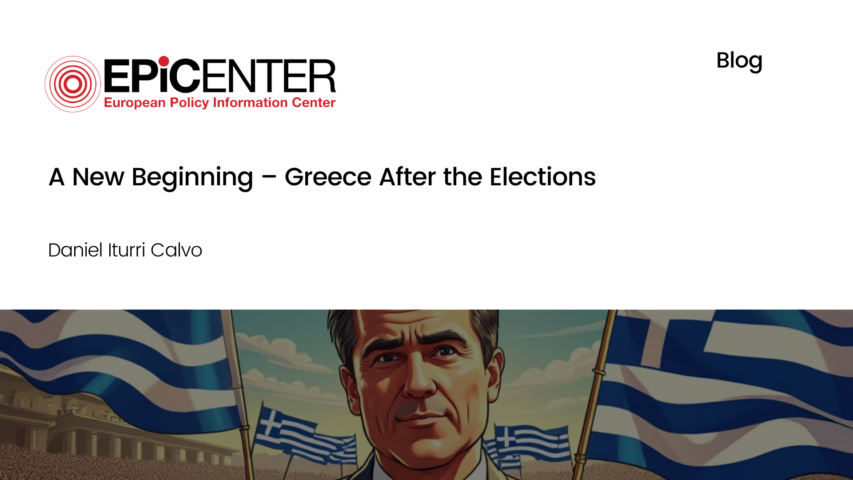A New Beginning – Greece After the Elections

A New Beginning – Greece After the Elections
Daniel Iturri Calvo // 30 July 2019
Unemployment peaked at 27.5%, more than 400,000 people emigrated in a single year, and the debt to GDP ratio reached 180%. The 2008 financial crisis hit Greece harder than every other European country, and the past 10 years have been a political and economic headache in the southern European country. Following years of austerity, Greek politics shifted away from Syriza’s far left and landed on Kyriakos Mitsotakis, charismatic a center-right politician with the task of revamping the Greek economy. But after a 25% reduction in the size of Greece’s economy, how will he deliver on his promises, and what does his election mean for the economies of Southern Europe?
Syrizas’ Alexis Tsipras managed to rise swiftly to power by capitalizing on Greece’s overwhelming disapproval of the EU and promising an end to austerity. During his prime-ministership, he managed to reduce the unemployment rate by almost 10 percentage points, enacted one of the biggest health reforms in the country’s history, and successfully managed Greece’s third and final bailout. However, unemployment remains the highest in the European Union, especially for the young, and austerity measures have exhausted the Greeks. Mitsotakis promised a new, free market outlook on economic recovery and managed to obtain a comfortable majority in parliament in order to take a step away from Tsipras’ left-wing economic policies.
Mitsotakis’ flagship promise is to double projected GDP growth to 4%. To do so, he will need to recover Foreign Direct Investment (FDI), which dramatically decreased during the 2008 crisis and has fluctuated in the aftermath. Finishing the awaited Hellinikon Project is one of his first orders of business as it exemplifies the style of change Mitsotakis wants to usher into Greece. The $8 billion project will transform Athens’ old airport into a business, residential, and cultural hub, and the new PM wants to make it the symbol of a renewed Greece.
In order to achieve this, Mitsotakis will need to tackle Greece’s deep-rooted bureaucratic maze that stalls this project as well as many other investment and business opportunities. Moreover, through a restructuring of Greece’s debt and the fiscal goals set with the EU, he intends to reduce taxes across the social spectrum by gradually reducing property tax by 30% and bringing down taxes on corporate profits, as well as for middle, and high income earners. These tax cuts, he hopes, will incentivize investment and business creation in a country that has fallen behind in levels of entrepreneurship and economic freedom compared to other European countries.
Mitsotakis has announced policies which, although promise hope for fiscal liberation in Greece, might go against the EU’s expectations from Greece. Brussels has had tight control over fiscal policy in Greece, and the austerity measures implemented by the New Democracy and Syriza leaders cost them their power. Mitsotakis’ policies seem to be in line with the Council’s macroeconomic recommendations announced recently, and if center-right Ursula von der Leyen ends up becoming commissioner he could already have some friends in Brussels. But judging from Tsipras’ attempt to go against the EU’s economic expectations, it will be hard for Mitsotakis to go far from the pathway outlined by Brussels.
If the Mitsotakis administration can actually successfully implement their economic plan, the Greek model could serve as an example to other southern European countries. Economic policy in southern Europe has been characterized by state control of industries and high tax burdens; but if Mitsotakis manages to liberalize the highly controlled energy sector and free up other markets he could begin a wave of change across the Mediterranean.
The past ten years for Greece have been marked by economic and social degradation, but during the next four years the country could finally begin a new economic era. Mitsotakis’ challenge will be to strike a balance between pleasing leaders in Brussels without angering his constituents at home, but perhaps his liberalising agenda might manage to keep both parties at bay.
EPICENTER publications and contributions from our member think tanks are designed to promote the discussion of economic issues and the role of markets in solving economic and social problems. As with all EPICENTER publications, the views expressed here are those of the author and not EPICENTER or its member think tanks (which have no corporate view).



